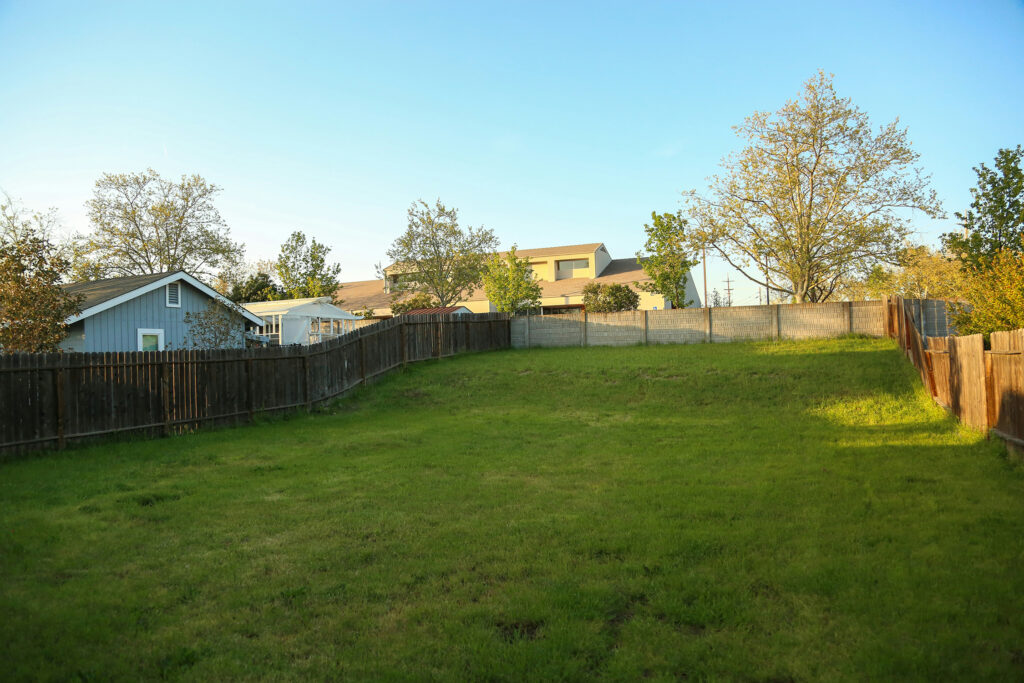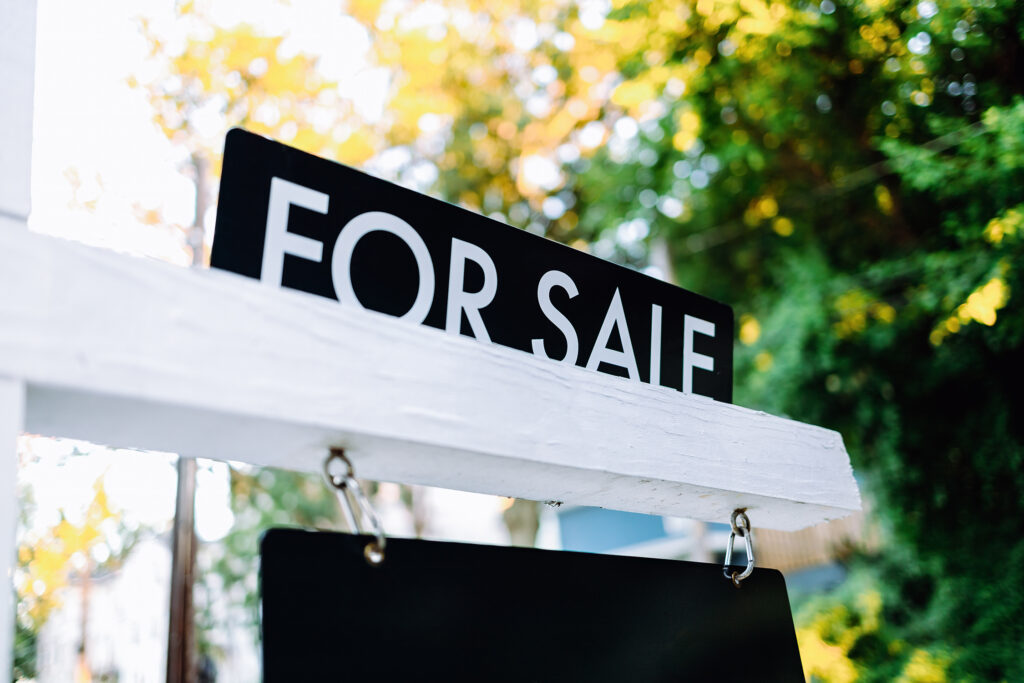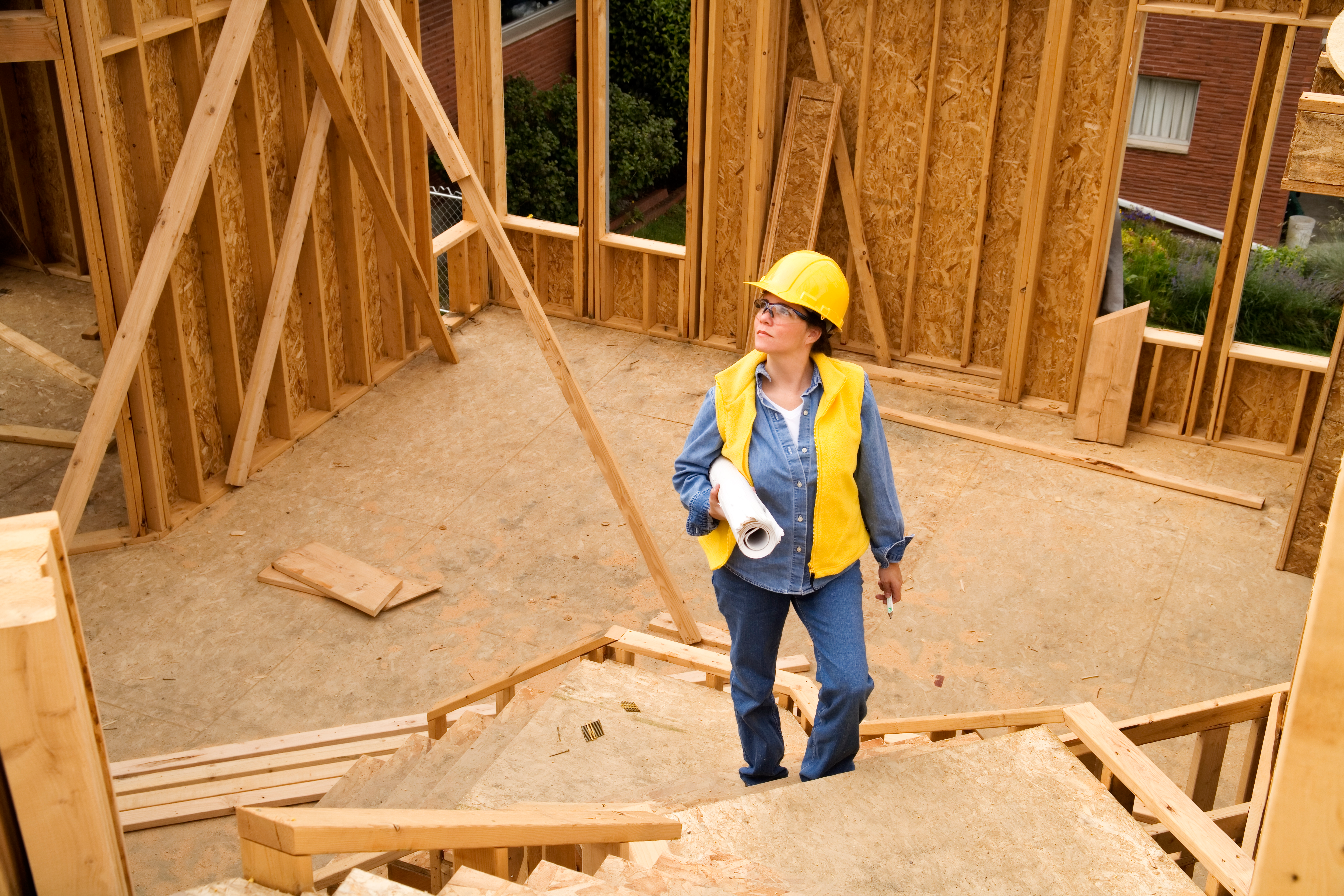
These Are the Drawbacks to Purchasing an Empty Lot, According to a Real Estate Expert
Plus, why investing in a teardown could save you time and money.

Feverpitched/Getty Images
Admittedly, I probably spend too much of my free time on Zillow. (Anyone remember that one 2021 SNL skit about 30-somethings fantasizing about their dream homes? That’s me.) During my recent scrolls through the app, I noticed that quite a few empty lots are for sale in my area—but they’ve been stuck on the market for weeks, or even months. Building a custom home is beyond appealing, but it comes with quite a few drawbacks, says Lindsey Harn, a residential real estate agent and owner of Lindsey Harn group in San Luis Obispo, California.
I spoke with Harn about her concerns when clients are interested in investing in an empty lot, plus her alternative solutions for buyers and sellers. See what she had to say below.

Giorgio Trovato/Unsplash
1. Prepare to Pay More Upfront
Financing a home versus a lot is vastly different. Harn says that while you can buy an existing home with as little as 3 percent down, you’ll need to put between 20 and 35 percent down, depending on the bank. She adds the bank will likely want to know who your contractor is, and they’ll also require a contract with them on the cost and spec of the build.
“It’s definitely not quite as straightforward as just getting a loan for a house where you can have the funds within a 30-day period,” Harn says. “There are, of course, more affordable construction styles, like prefab homes that make the cost of building a little bit less, but every city, county, and municipality has their own rules about what’s allowed on the lot and what’s not.”
2. Expect Lots of Extra Fees
“Buying a lot is great because you can build what you want and get an outcome that you’d like,” Harn says. “The challenge is, the fees are sometimes exorbitant, meaning hooking up to utilities, permits, and school fees can run like $100,000, or even more.”

3. Some Findings Can Cause Delays
In most cases, you can anticipate more surprises when you’re building from scratch, and Harn says you can expect it to take about twice as long as planned and cost roughly 20 to 30 percent more than budgeted.
There are hidden challenges that might come with the territory, too. For instance, Harn says if there’s evidence of an endangered species or Native American burial on the site, your project could experience delays (about a year or two) or get shut down indefinitely.
4. Purchasing Existing Plans Might Cause Challenges
I’ve also noticed that many of these lots are sold with architectural plans, which could help potential buyers skirt some of the steps involved in building a home from the ground up. However, Harn says those plans most likely won’t line up with your vision.
“Occasionally, it works out wonderfully, especially if the seller has basically planned or spec’d a home that meets a buyer’s needs,” she says. “A lot of times we’ll see a seller build or plan something so specific to them that it doesn’t always translate to the next person. So, the plans are worth a lot if it meets the next buyer’s needs, but if it’s very unique or custom, the chances of it checking everybody’s boxes are probably going to be pretty low.”

Getty Images
Popular Alternatives to Purchasing a Lot
If you’re overwhelmed by the potential challenges and costs of building a brand new home, Harn says there are other options, like finding a teardown.
“A lot of times, clients will actually save one corner of the house, like one tiny inch, because they can call it a ‘remodel’ versus a total rebuild,” she says. “The nice thing about doing it that way is the utilities are already hooked up, so that saves a lot of time and money. You don’t have to coordinate with the gas company, the city, the county for water, septic, etc., so that’s a huge plus.”
Another pro? Budgeting. Harn says it’s easier to determine your build’s overall cost when you purchase an existing home or property you want to remodel. That said, teardowns dating back to before 1978 could have lead or asbestos. Sellers will need to share that information with potential buyers, and buyers who want to remodel will need to take the necessary precautions such as scheduling an inspection and hiring an EPA- or state-certified renovator to minimize any exposure to hazardous materials.
Regardless of the lot or home you purchase, you want to do your research and understand what could go awry in the process of building or remodeling.
“You just have to ask yourself, ‘Do I have the resources to hire help—friends or family or connections?’” Harn says. “It’s all about educating yourself in the process and making sure you know what you’re getting into, so that you don’t get into a situation where there is a problem and you’re out of funds to correct it.”
